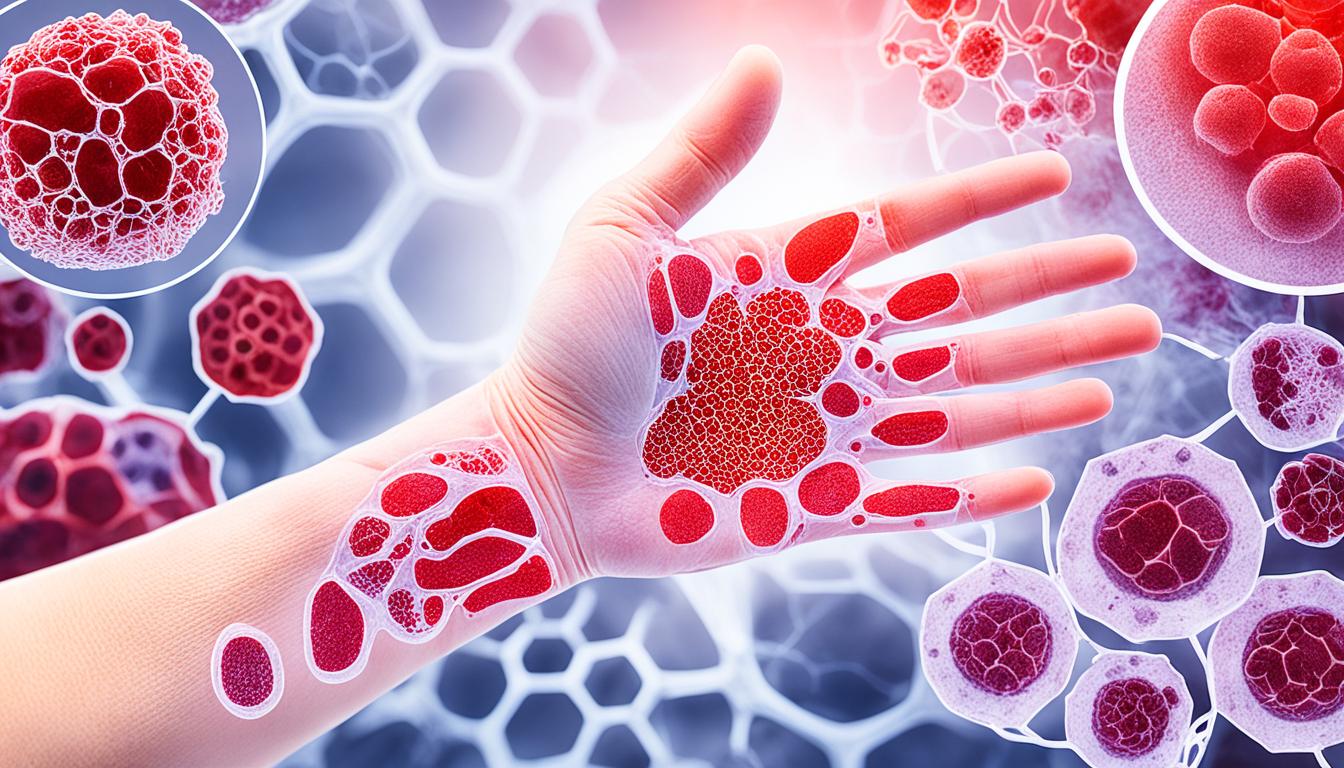Dermatitis is a common skin issue that causes inflammation. There are several types, including eczema, contact dermatitis, and seborrheic dermatitis. No matter the kind, dermatitis shows up with redness, itching, and rash. The exact cause isn’t fully understood, but it can be triggered by irritants, allergens, or problems with your immune system.
Doctors usually diagnose dermatitis by checking your skin, asking about your health, and might do tests like an allergy test. Common treatments include creams and lifestyle changes to avoid what makes your skin react. But there’s also a new approach: stem cell therapy.
Stem cell therapy uses special cells to treat the root problem of dermatitis. These cells come from places like bone marrow or umbilical cord blood. Some studies have suggested this therapy might help calm the skin’s allergic and inflammatory reactions. These special cells can change how your immune system works and help heal your skin, showing promise for treating dermatitis.
Key Takeaways:
- Dermatitis is a skin condition characterized by inflammation and can manifest in different forms.
- Symptoms of dermatitis commonly include redness, itching, and rash.
- Dermatitis can be triggered by irritants, allergens, genetics, and immune system dysfunction.
- Diagnosing dermatitis involves a physical examination, medical history review, and sometimes additional tests.
- Traditional treatments for dermatitis involve topical therapies and lifestyle modifications.
- Stem cell therapy utilizing mesenchymal stem cells has shown promise in treating dermatitis.
- MSCs can modulate the immune response and promote tissue regeneration.
- Further research is needed to optimize the use of MSCs and determine long-term efficacy and safety in dermatitis treatment.
Causes and Risk Factors of Dermatitis
Dermatitis is a skin condition with complex causes and risks. Knowing these factors is key to preventing and managing it well.
Allergens
Allergic dermatitis happens when the body reacts too much to some things. This reaction can cause swelling. Some common triggers are:
- Foods
- Pollen
- Pet dander
- Metal allergies
Irritants
Touching certain harsh materials can lead to contact dermatitis. Some of these materials include:
- Chemicals
- Detergents
- Soaps
- Solvents
Genetic Factors
Atopic dermatitis often runs in families. Those with relatives who have allergies or asthma are more likely to get it. This shows how important family history is.
Environmental Factors
The world around us greatly affects dermatitis. Being around pollution and some materials can be harmful. This increases the chance of having dermatitis.
Immune System Dysfunction
Our immune system’s health is closely tied to dermatitis. If it’s too active or not working well, it can cause skin issues. So, a balanced immune system is important for skin health.
Other Factors
There are many other things that can also cause dermatitis. For example:
- Stress
- Hormonal changes
- Certain medical conditions
Knowing the causes and risks of dermatitis can help manage it. Finding out what triggers your skin and using proper skincare are big steps towards healthier skin.
| Type of Dermatitis | Causes |
|---|---|
| Contact Dermatitis | Irritant substances like chemicals and detergents |
| Allergic Dermatitis | Allergens such as certain foods, pollen, and pet dander |
| Atopic Dermatitis | Genetic factors and family history of allergies or asthma |
Stem Cell Therapy for Dermatitis Treatment
Stem cell therapy is showing a lot of promise for treating dermatitis. It offers hope to people with this skin issue. It works by using mesenchymal stem cells (MSCs), which have special abilities to help the body heal and fight inflammation.
MSCs come from different places like bone marrow, umbilical cord blood, and fat. They can be given to the skin or into the body through injections. These cells mainly help by calming down the body’s overactive immune response, which reduces redness, helps repair damage, and makes the skin stronger.
Studies are looking into this treatment, and the news is good. People with dermatitis who got MSC therapy saw their symptoms get better and their skin became less inflamed. MSCs can even turn into skin cells, which is great for fixing damaged skin.
Yet, more research is needed to make stem cell therapy for dermatitis even better. Doctors need to keep testing it to understand how safe and effective it is. They’re also working to figure out the best ways to give the treatment. With all this work, stem cell therapy might really change the game for people with dermatitis.

